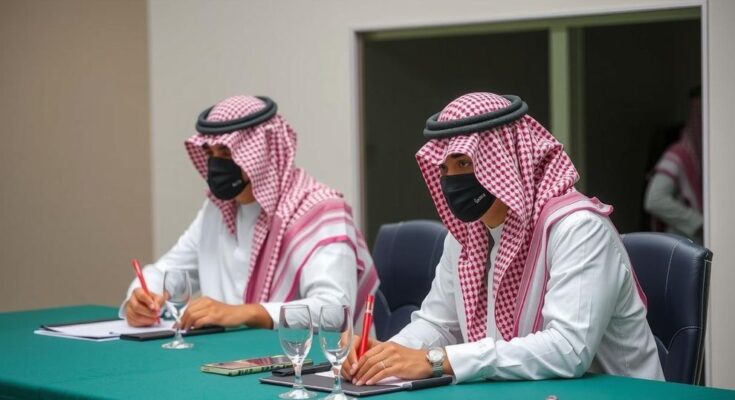Qatar is in talks to fund public wage increases in Syria following the removal of Bashar al-Assad. This initiative coincides with the U.S.’s easing of sanctions on Syria, opening avenues for foreign assistance. Qatari officials have begun engaging directly with Syria’s interim government to coordinate efforts for the country’s reconstruction, marking a shift in Qatar’s diplomatic approach after years of supporting the opposition during the civil war.
Qatar is currently engaged in discussions to potentially finance an increase in public sector salaries for Syria’s new leadership, according to a diplomatic source. This dialogue comes amidst the Syrian interim government’s efforts to rebuild its state institutions following last month’s overthrow of Bashar al-Assad. While no formal agreement has been reached yet, these negotiations indicate a significant shift in foreign involvement in Syrian affairs, facilitated by recent actions from the United States which included the temporary lifting of some sanctions against Syria.
The United States’ recent decision to ease sanctions on Syria provides a window for potential foreign financial aid, thereby enabling countries like Qatar to consider supporting Syria’s economic recovery. The ongoing talks involve coordinating efforts not only with the Syrian authorities but also with regional partners and allies. In a notable diplomatic visit, Syria’s transitional government ministers met with Qatari Prime Minister Sheikh Mohammed bin Abdulrahman bin Jassim Al-Thani, where issues regarding international sanctions were raised, marking a strategic re-engagement between Qatar and Syria.
Qatar has historically maintained a delicate relationship with Syria, having supported opposition forces during the civil unrest that began in 2011, which ultimately led to the downfall of Assad’s regime. The recent political developments may pave the way for renewed cooperation between Qatar and Syria as they navigate this transition period. Furthermore, Qatar’s initiative to send power ships alongside Turkey to enhance Syria’s electricity supply further demonstrates its commitment to supporting the country in this challenging phase of recovery.
The context of this diplomatic engagement lies in the aftermath of a 13-year-long civil war in Syria, which culminated in the ousting of President Bashar al-Assad. Following his removal, there has been a pressing need for economic and state rebuilding efforts in Syria, particularly in enhancing public sector salaries and services. The United States’ recent decision to lift certain sanctions temporarily raises the prospects for foreign investments in Syria’s reconstruction, which has been severely hampered by years of conflict and international isolation. Qatar, which had previously resisted re-establishing ties under Assad, appears to be reconsidering its stance as it seeks to play a role in Syria’s stabilization amid shifting geopolitical dynamics. Through renewed diplomatic contacts and financial discussions, Qatar seeks to leverage its resources to aid in Syria’s recovery while also aligning itself with the broader objectives of its allies in the region.
In conclusion, Qatar’s willingness to finance public wage increases in Syria marks a significant development in the post-Assad political landscape, offering a potential avenue for foreign assistance and economic recovery. With the United States facilitating this possibility through sanctions relief, Qatar’s renewed engagement highlights the complexities of Middle Eastern geopolitics, especially as it relates to humanitarian aid and governmental reconstruction in war-torn nations. The outcome of these discussions will be pivotal for Syria’s immediate future and regional stability.
Original Source: www.barrons.com




